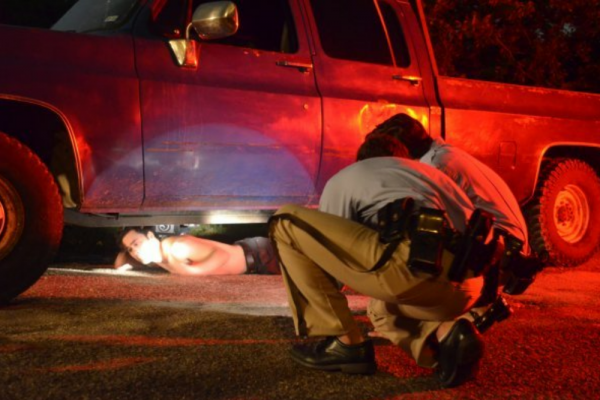In the spring of 2006, I sat in the living room of Rose Rhoton, whose younger brother, Carlos DeLuna, had been executed by the state of Texas in 1989 for a murder in Corpus Christi. I was a reporter for the Chicago Tribune and, along with my reporting partner, Steve Mills, informed her that after several months of investigation, we had concluded that Carlos was innocent — that another man, also named Carlos, had committed the murder.
Seconds elapsed as she stared at us. Two decades had passed since Carlos was arrested and convicted.
Finally, she spoke.
“What am I supposed to do with this?” she asked, her voice cracking. “What good does this do me now?”
As our conversation continued, it became clear to me, just as it had during similar conversations I had had with family members of wrongfully convicted defendants, how gut-wrenching it can be to learn that the truth had been hidden or suppressed for years. Family members have told me that they convinced themselves that their loved ones were in fact guilty because it was too emotionally and psychologically difficult to hold onto the belief in their innocence.
The original investigative work on the DeLuna case had begun in 2003 by James Liebman, a law professor at Columbia Law School in New York City, and his students. In 2005, Liebman came to us at the Tribune to ask if we would be willing to re-examine the case. We agreed.
It didn’t take long for us to dive in. DeLuna had been executed for stabbing a gas station clerk, Wanda Lopez, to death during a robbery. The crime scene photos were enough to pique our interest — blood covered the counter, the cash register, and the floor. DeLuna was arrested within minutes, shirtless and shoeless. His shoes and white shirt were later recovered in a backyard. Not a single speck of blood was found on him or his clothing. How, we wondered, could that be if he had just committed such a violent murder?
DeLuna insisted after he was arrested and at trial that another Carlos — Carlos Hernandez — had committed the crime. DeLuna said he was across the street when it happened, and he ran because he didn’t want to be blamed. He said Hernandez ran as well.
Too much guilt
In June 2006, the Tribune published our three-part series: Did One Man Die for Another Man’s Crime? The answer, based on our reporting, was yes. Evidence strongly pointed to Hernandez, a man with a history of knife crimes, as the true killer. Witnesses told us that Hernandez had admitted he killed Lopez. An eyewitness who identified DeLuna as he sat in the back of a police car minutes after the crime admitted to us he was never sure, but just assumed police had the right person because police told him DeLuna was found hiding under a truck.
The response to our series was largely silence.
For a short time, after our articles were published, DeLuna’s sister, Rose, made a few public appearances on behalf of the Texas Coalition to Abolish the Death Penalty. But she quickly dropped out, returning to a life of anonymity. There was too much anguish and too much guilt. At the time of our reporting, she told us she questioned whether she had done enough to fight for Carlos at the time of his trial.
In late June 2006, less than a month after our articles were published, the U.S. Supreme Court issued a ruling upholding the death penalty in Kansas. Justice Antonin Scalia, responding to a dissent by Justice David Souter, declared:
“It should be noted at the outset that the dissent does not discuss a single case — not one — in which it is clear that a person was executed for a crime he did not commit. If such an event had occurred in recent years, we would not have to hunt for it; the innocent’s name would be shouted from the rooftops by the abolition lobby.”
In 2014, Liebman and his students published a book about the case: The Wrong Carlos: Anatomy of a Wrongful Execution. In January 2015, former Supreme Court Justice John Paul Stevens said that he believed “beyond a shadow of a doubt” that DeLuna was innocent and that same year, U.S. Supreme Court Justice Stephen Breyer wrote in a dissent that it was “highly likely” that the death penalty was unconstitutional, citing the wrongful executions of DeLuna and others.
Journalists cannot conduct DNA testing. We do not file motions in court on behalf of defendants. For something to happen as a result of our reportage, there must be someone — an activist, a lawyer, a participant in the criminal justice system — who is willing to take some action.
But while it seemed that little was happening, in fact DeLuna was not forgotten.
A launching point
On July 1, U.S. Attorney General Merrick Garland announced a moratorium on federal executions, reversing a decision by his predecessor, William Barr, to resume federal executions after a 17-year pause.
“The Department of Justice must ensure that everyone in the federal criminal justice system is not only afforded the rights guaranteed by the Constitution and laws of the United States, but is also treated fairly and humanely,” Garland said in a news release. “That obligation has special force in capital cases.”
Criminal justice reform advocates welcomed the news, but urged President Joe Biden to take further action.
“This is an encouraging step, but remember: the Trump administration was able to take the lives of 13 people after a 17-year hiatus from federal executions,” tweeted the Catholic Mobilizing Network, a faith-based organization working to end the death penalty and reform the U.S. criminal justice system. “President Biden needs to go further to prevent a future execution spree by commuting the sentences of all those on the federal death row.”
Catholic Mobilizing Network is one of several organizations sponsoring a petition to urge Biden to commute the sentences of all defendants on federal death row. Other groups, include the Innocence Project, Equal Justice USA, 8th Amendment Project, Witness to Innocence, American Civil Liberties Union, Daily Kos, The Texas Coalition to Abolish the Death Penalty, Conservatives Concerned About the Death Penalty, and Death Penalty Focus.
The petition is launching in conjunction with The Phantom, a film based on the arrest, prosecution, and execution of DeLuna, which premiered last month at the Tribeca Film Festival. British filmmaker Patrick Forbes has been working on this film for years. The movie’s theatrical release date, July 2, was timed to coincide with the 45th anniversary of the U.S. Supreme Court’s decision in Gregg v. Georgia, which permitted executions to resume in the United States.
I urge everyone to see The Phantom. It breaks new ground — uncovers new evidence — that cements the conclusion I have maintained since 2006: Carlos DeLuna was an innocent man who was executed for a crime he did not commit. And then, sign the petition.
Although Catholic Mobilizing Network is the only faith-based organization so far to be directly involved in this initiative, in February 2021, The Leadership Conference on Civil and Human Rights, a coalition of more than 220 national organizations, along with 82 other organizations, many of them faith groups, urged Biden to commute all federal death sentences and reinstate the federal moratorium on the use of the death penalty.
Jonathan Wilson-Hartgrove is one of the prominent Christian activists urging for the abolishing of the death penalty. “As a follower of Jesus, I started visiting North Carolina’s death row because Jesus promised to meet me there,” the Baptist author told me. “In the fellowship of the condemned, I have not met perfect men, but people who both shine with God’s glory and bear the marks of the trauma they’ve experienced. One of them, Henry McCollum, has been exonerated since I got to know them. I do not know how many others are innocent of the crimes for which they’ve been convicted, but I’m certain of this: We don’t know enough to take any of their lives. I pray anyone who believes in the possibility of redemption would join the petition to end federal executions.”
Change comes slowly
Since 2012, I have been the senior researcher for the National Registry of Exonerations, a national online database of wrongful convictions in the United States. The registry is a joint project of the University of California Irvine Newkirk Center for Science & Society, University of Michigan Law School, and Michigan State University College of Law.
During the month of June, we surpassed 2,800 exonerations added to the registry since 1989 and also reached a grim milestone: 25,000 years of life lost to wrongful conviction. Among these cases is that of Anthony Mazza, who was exonerated in Massachusetts earlier this year after spending 47 years in prison. Mazza has the upsetting distinction of spending the longest time in prison prior to exoneration. The registry maintains a list of more than 180 exonerated prisoners who spent more than 25 years in prison.
I have written more than 2,000 summaries of cases of wrongful conviction. In more than 35 percent of these cases, no crime was committed at all: A suicide is labeled a murder, an accidental fire is classified as arson, a sexual abuse claim is revealed to be a lie, a drug arrest is negated by a lab test showing no drugs were actually found.
Of the 2,800 exonerations in the registry, 132 had been sentenced to death. They are the lucky ones — they live long enough to be exonerated. It’s too late for Carlos DeLuna — we cannot bring him back from the grave.
Change comes slowly. But it is coming, it appears. In 2000, Illinois Gov. George Ryan became the first governor in U.S. history to impose a moratorium on the death penalty. At that time, 12 states and the District of Columbia barred the death penalty. In 2007, a year after the Tribune series on DeLuna, New Jersey outlawed the death penalty. Other states, including Illinois, have followed. Earlier this year, Virginia, the state that has executed more people than any other state in history became the 23rd state to abolish the death penalty and the first in the South. (Texas has executed the most people in the United States since the death penalty was reinstated in the 1970s).
Many years ago, while working for the Tribune, I was fortunate to meet Sr. Helen Prejean, who authored the 1993 book Dead Man Walking, and is one of the United States’ leading advocates for abolishing the death penalty. I recently reached out to her to ask why it is important for people to sign the petition.
“Many people were outraged by the previous administration’s rush to execute 13 human beings during its final year in power,” she said. “Outrage without an accompanying action turns into paralysis, and while it was clear we had little chance of swaying Trump and Attorney General William Barr from their determined path, now, with President Biden, we have a real chance to push for the end of the federal death penalty.
“Signing the petition asking the president to follow through on his campaign promise to abolish the federal death penalty is one way to turn our just outrage into action.”
Just outrage, indeed.
Got something to say about what you're reading? We value your feedback!






